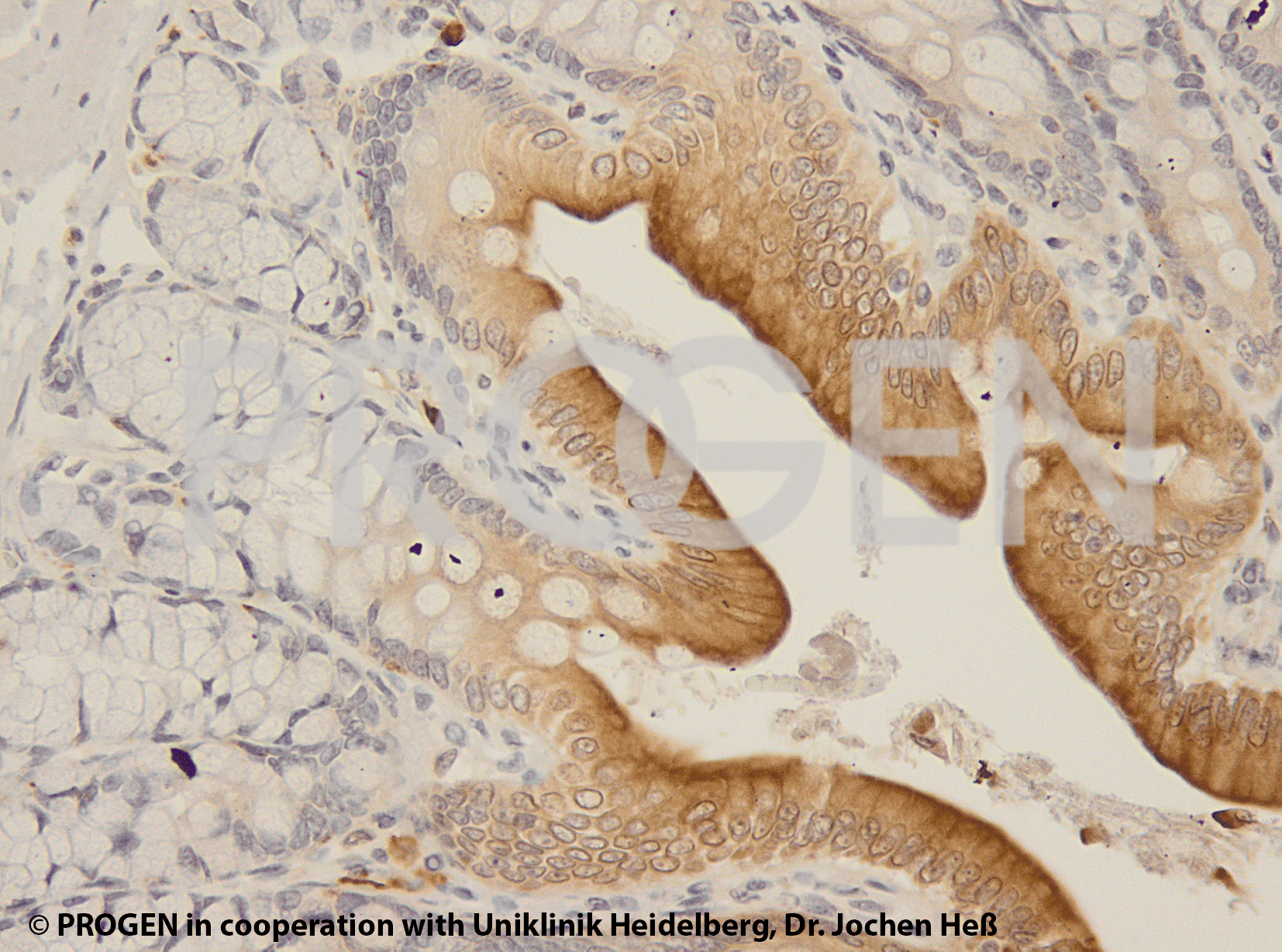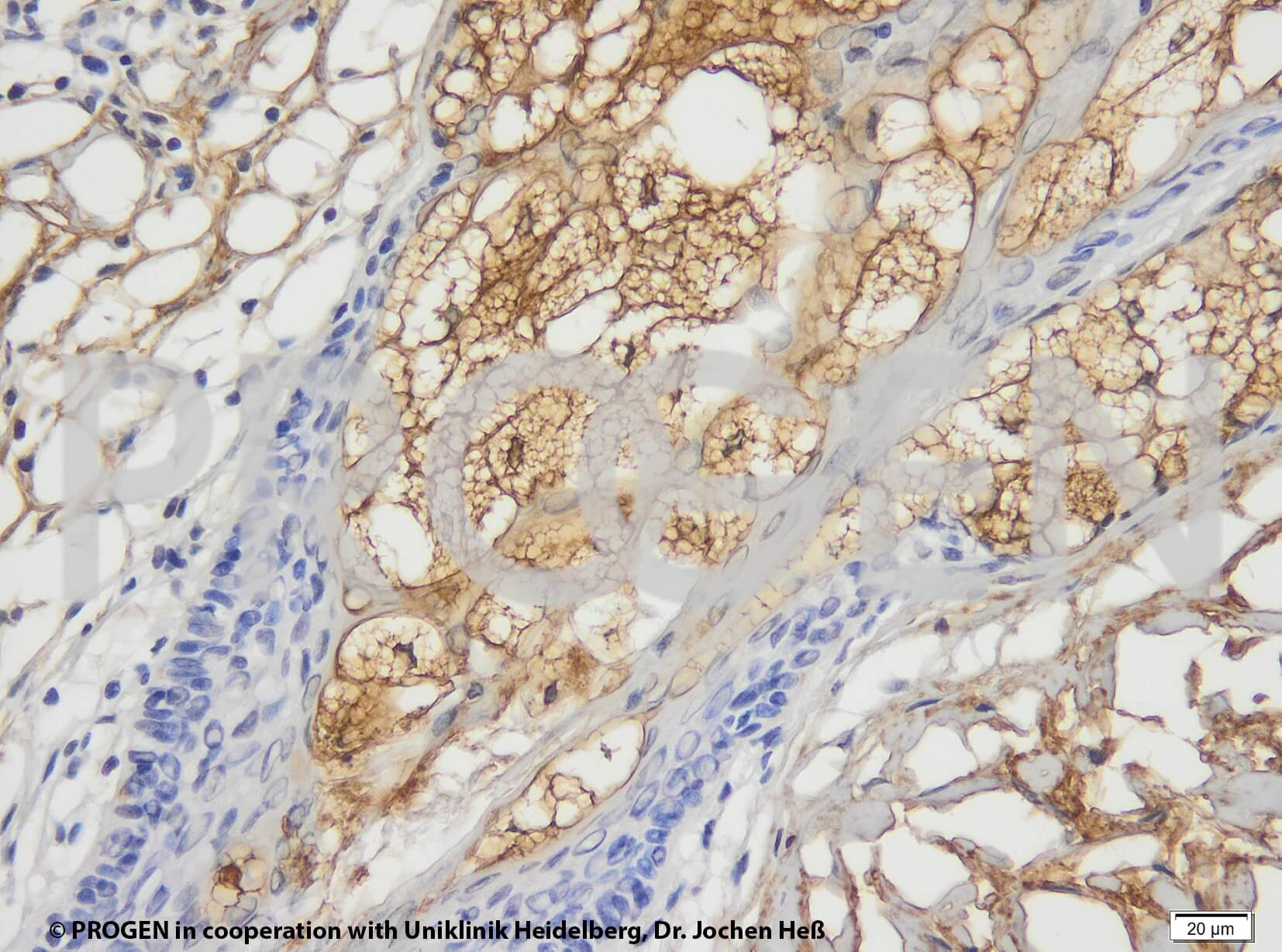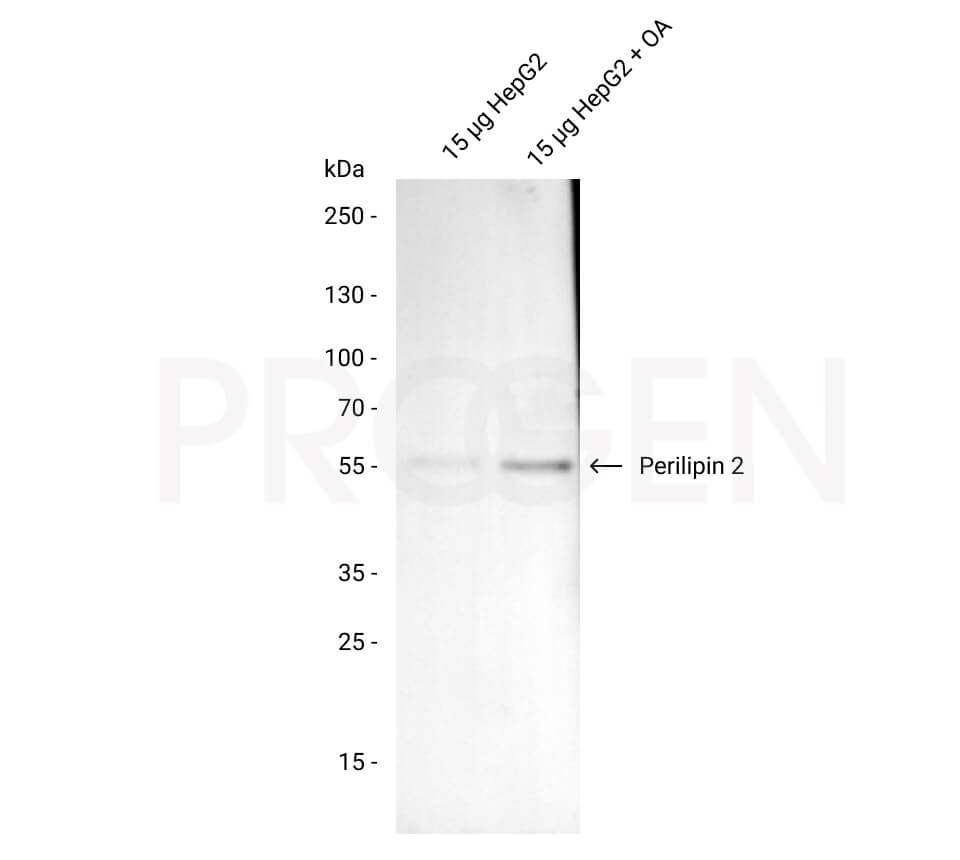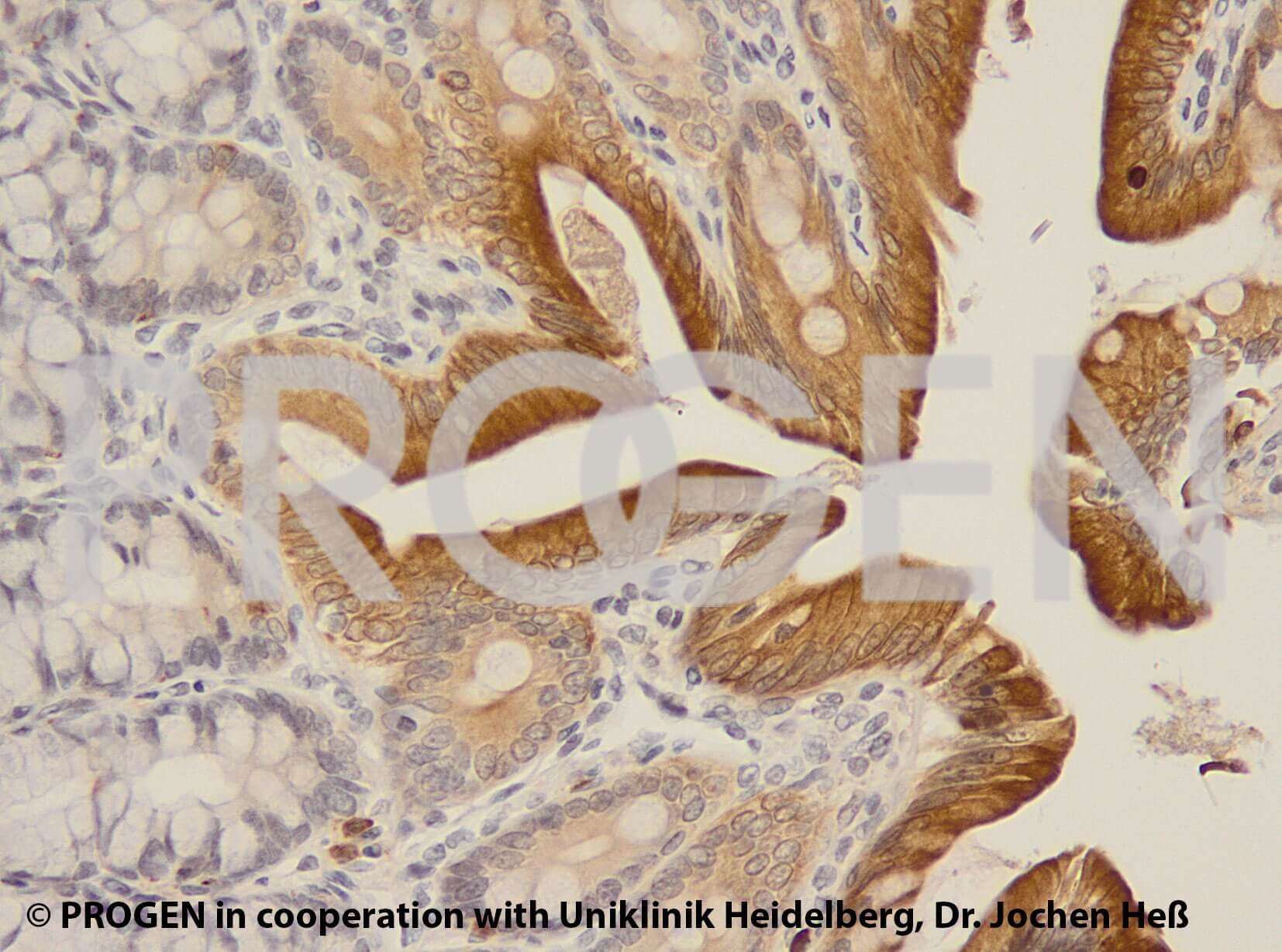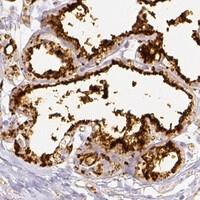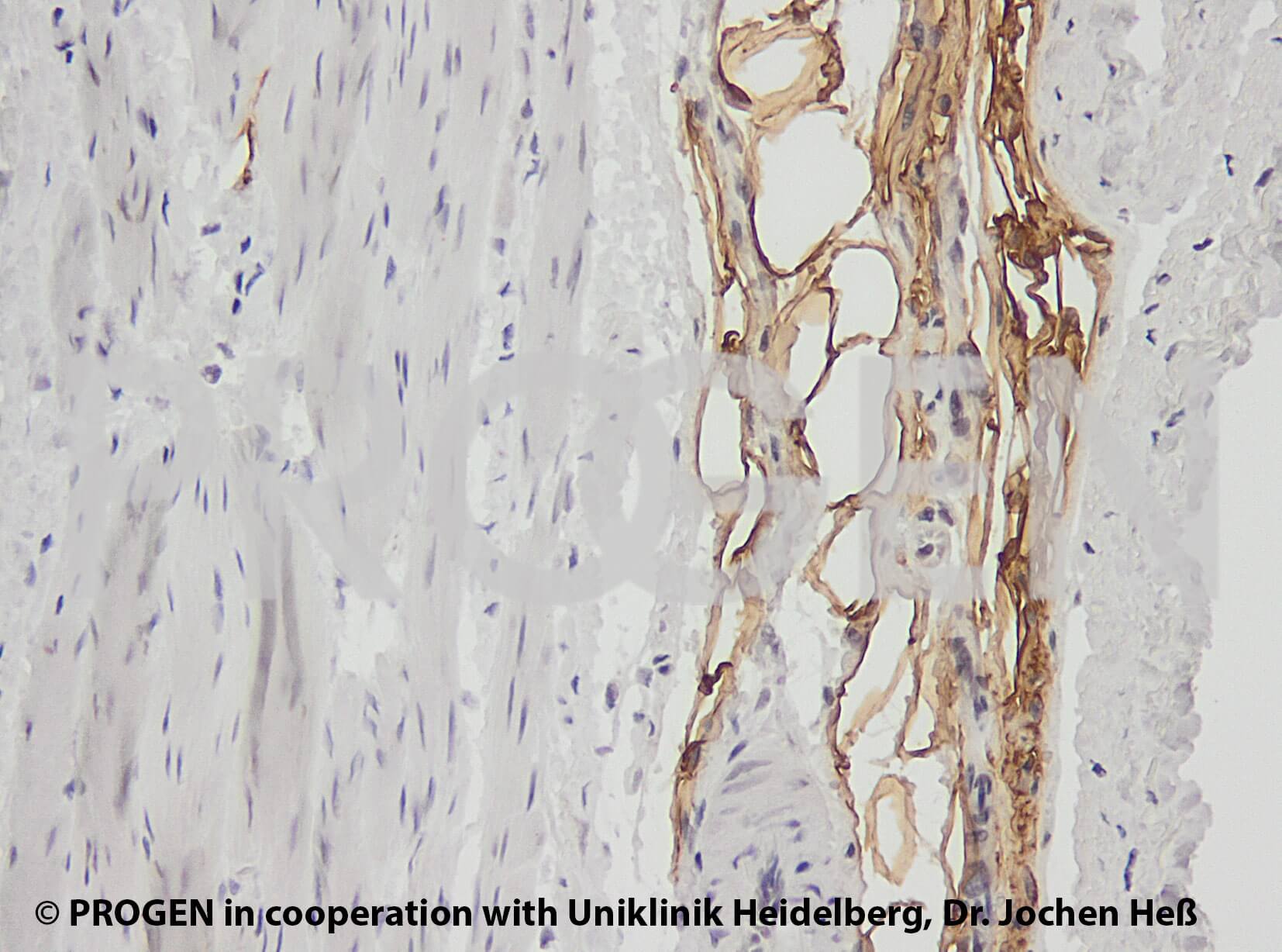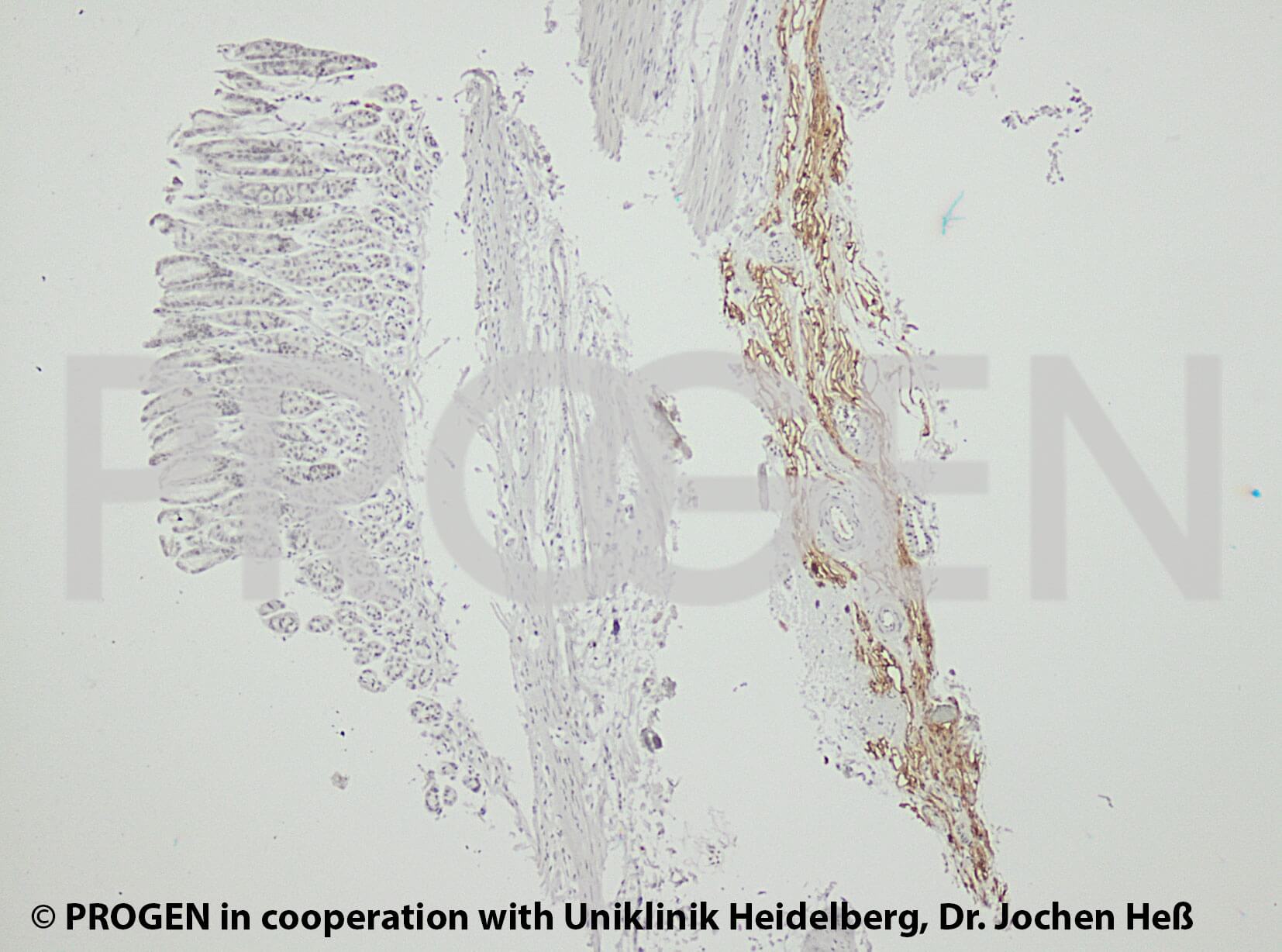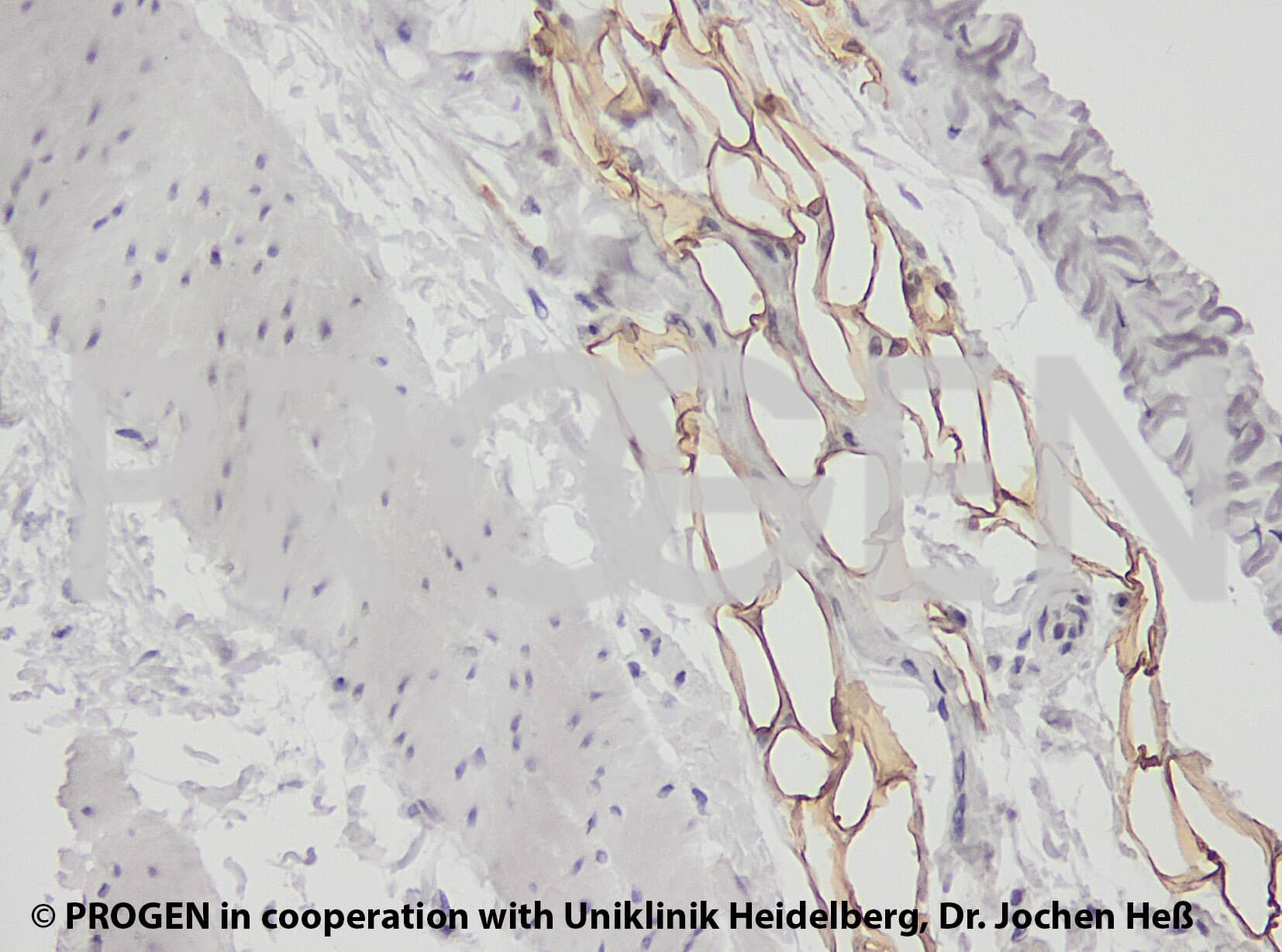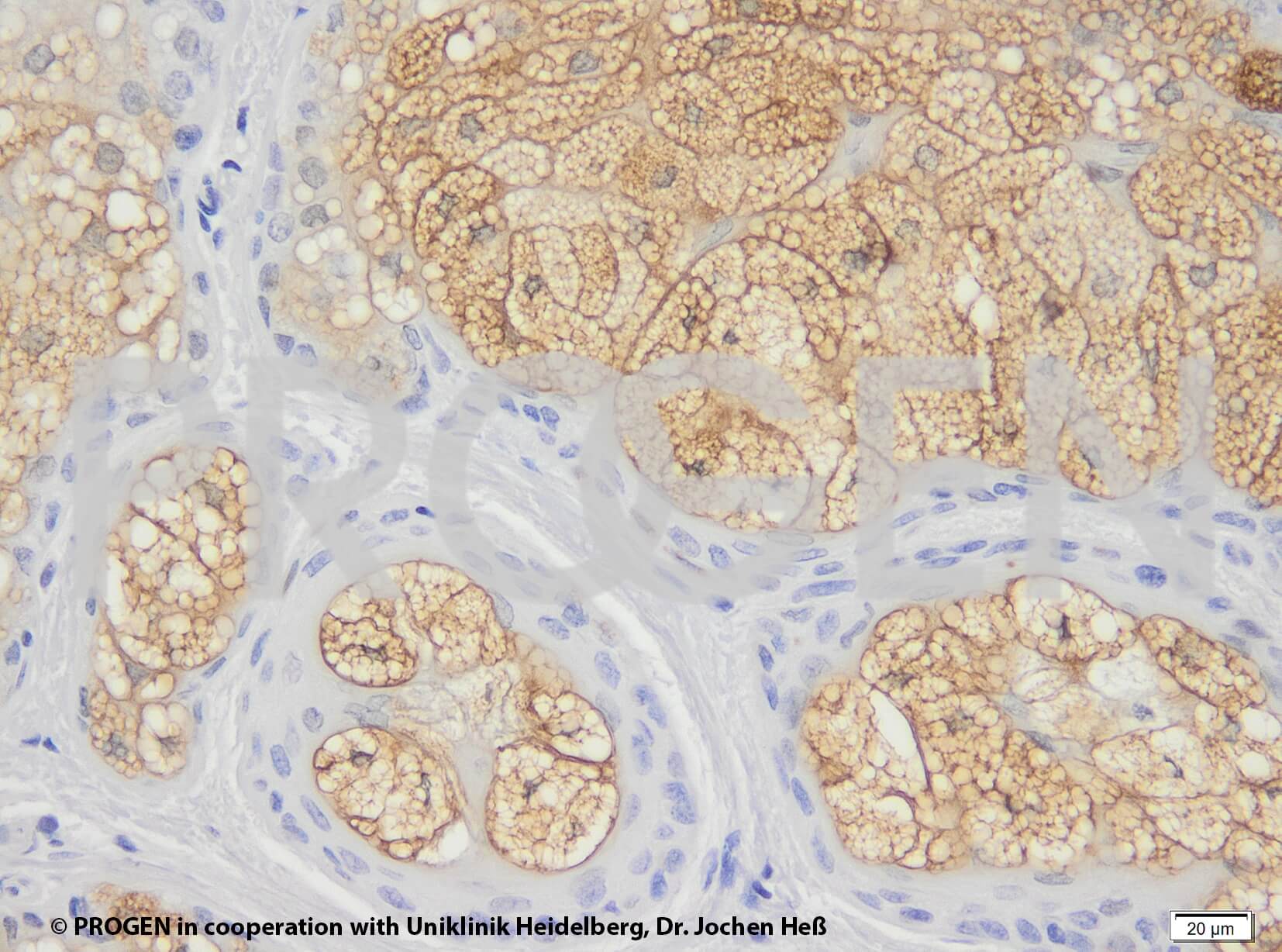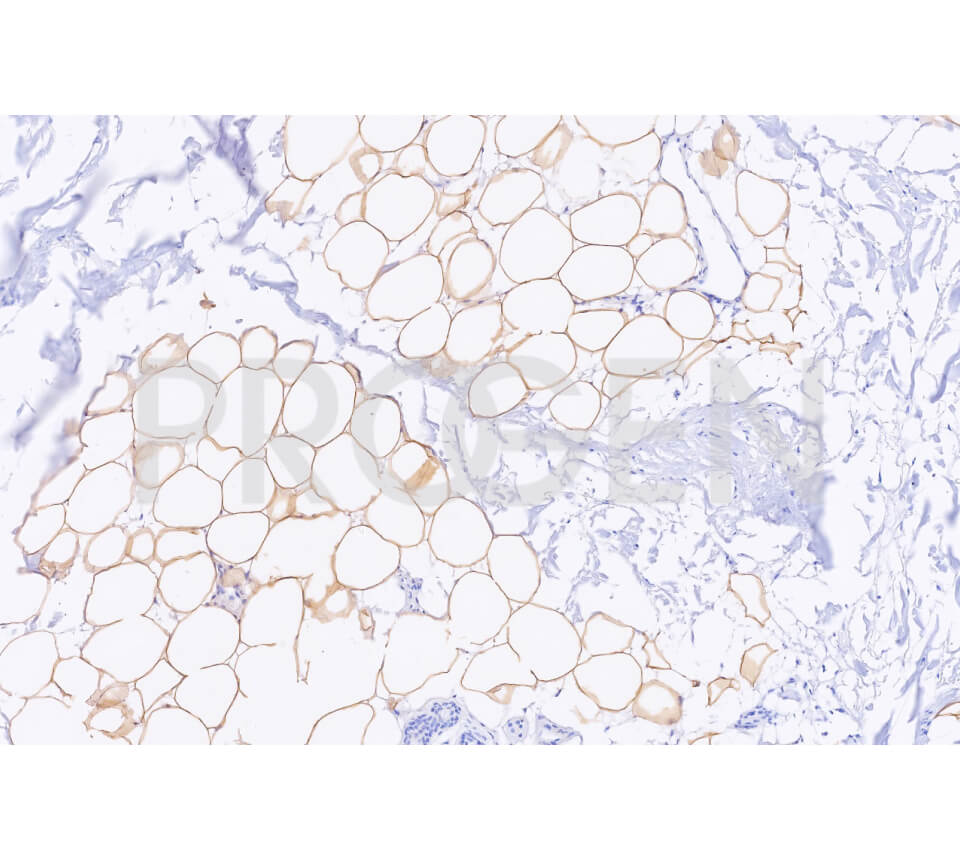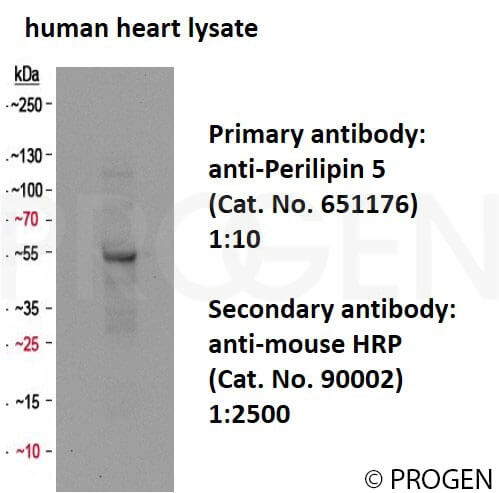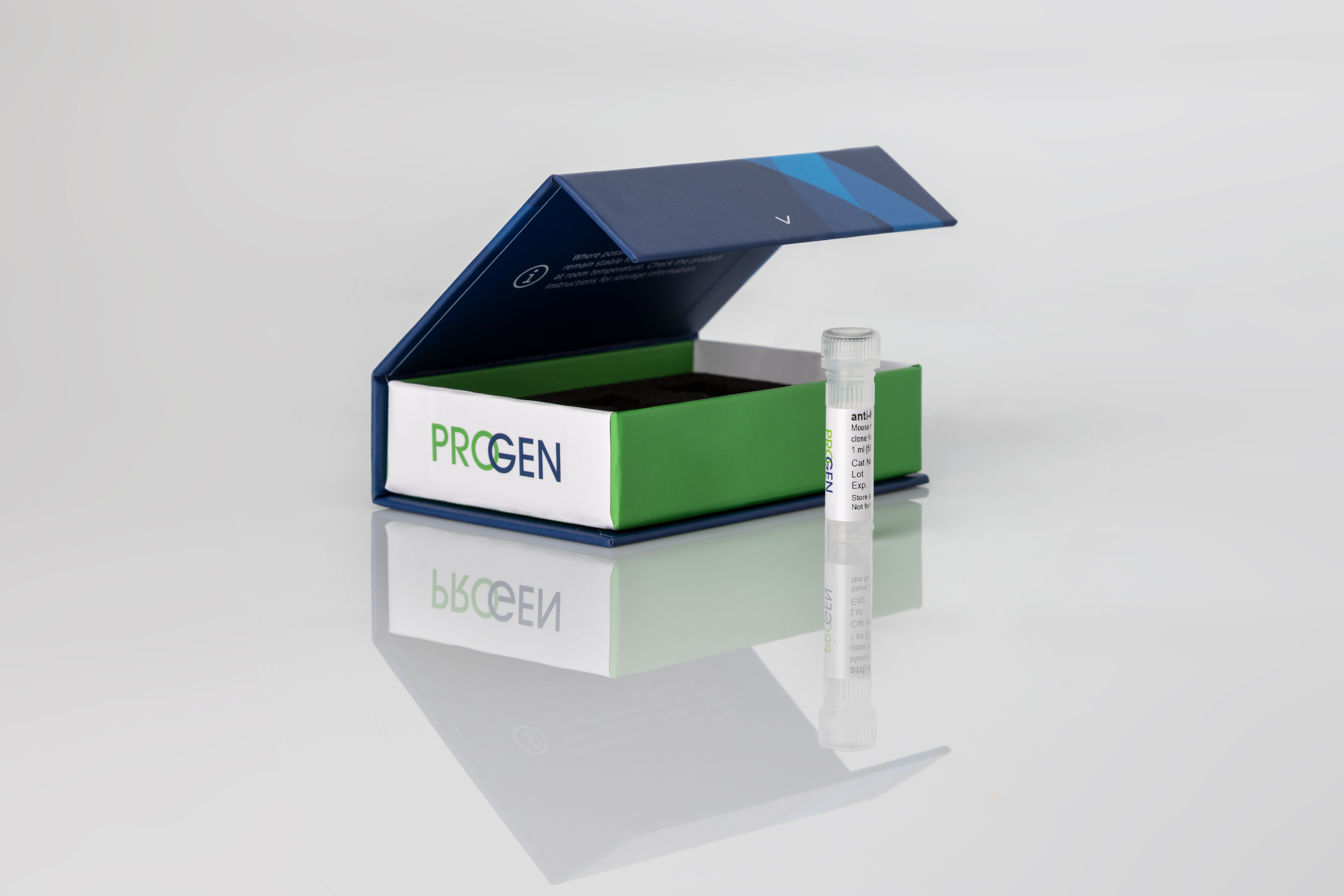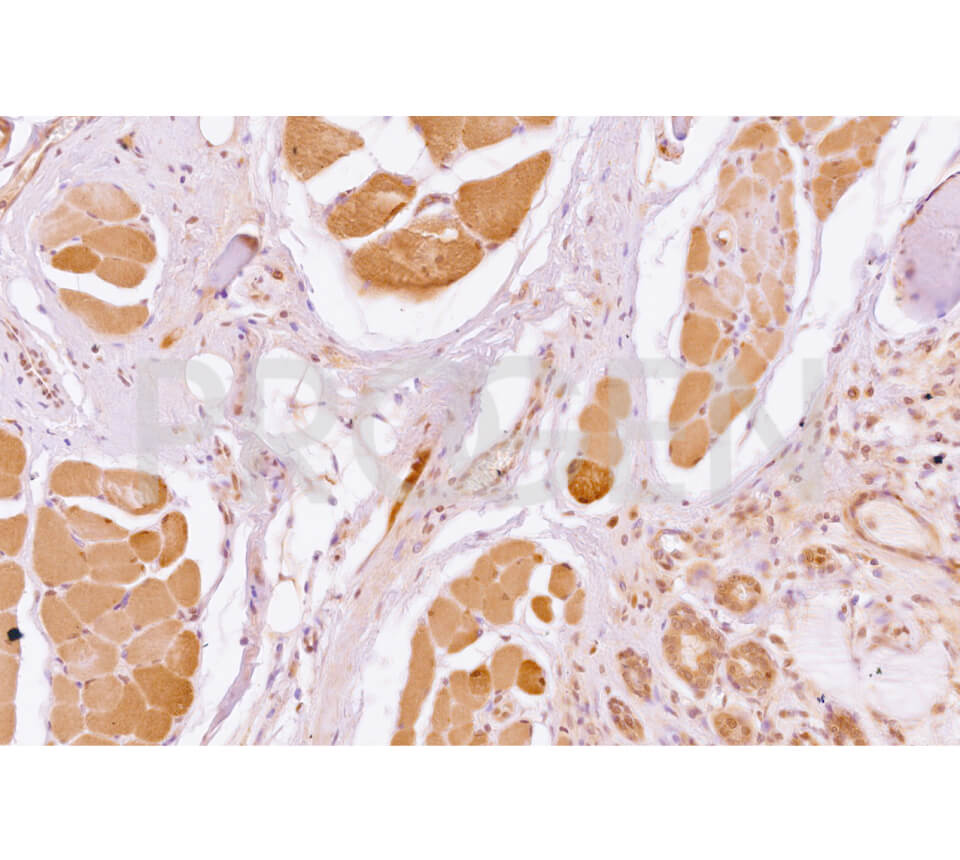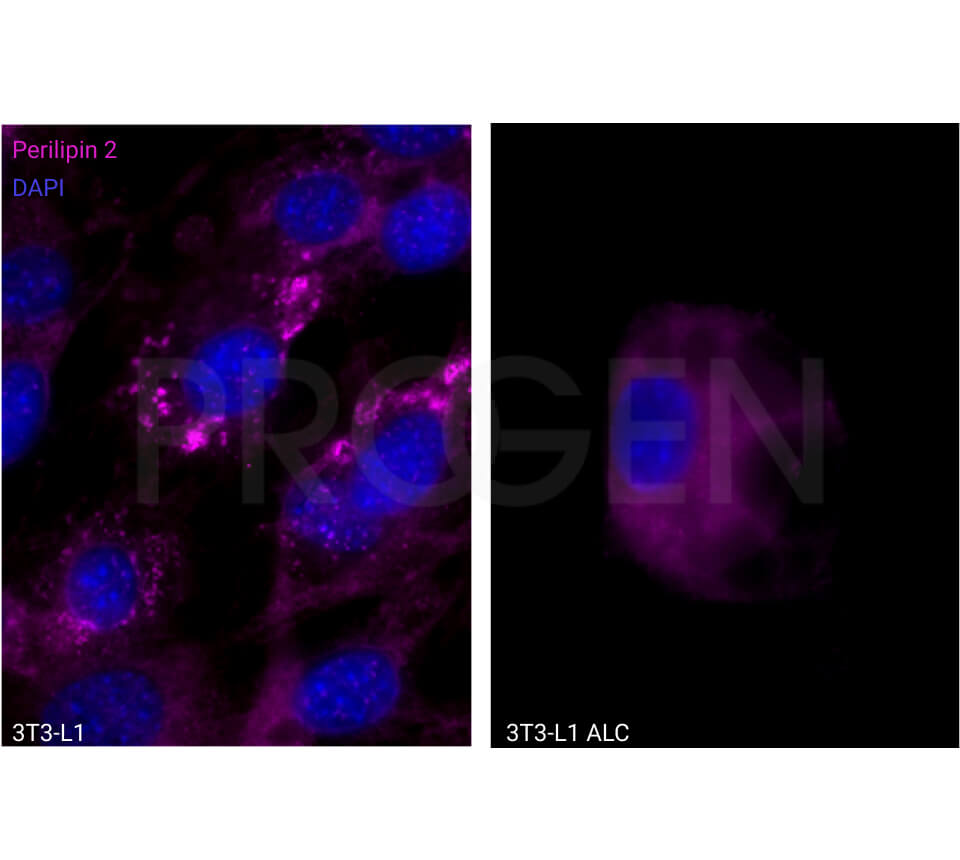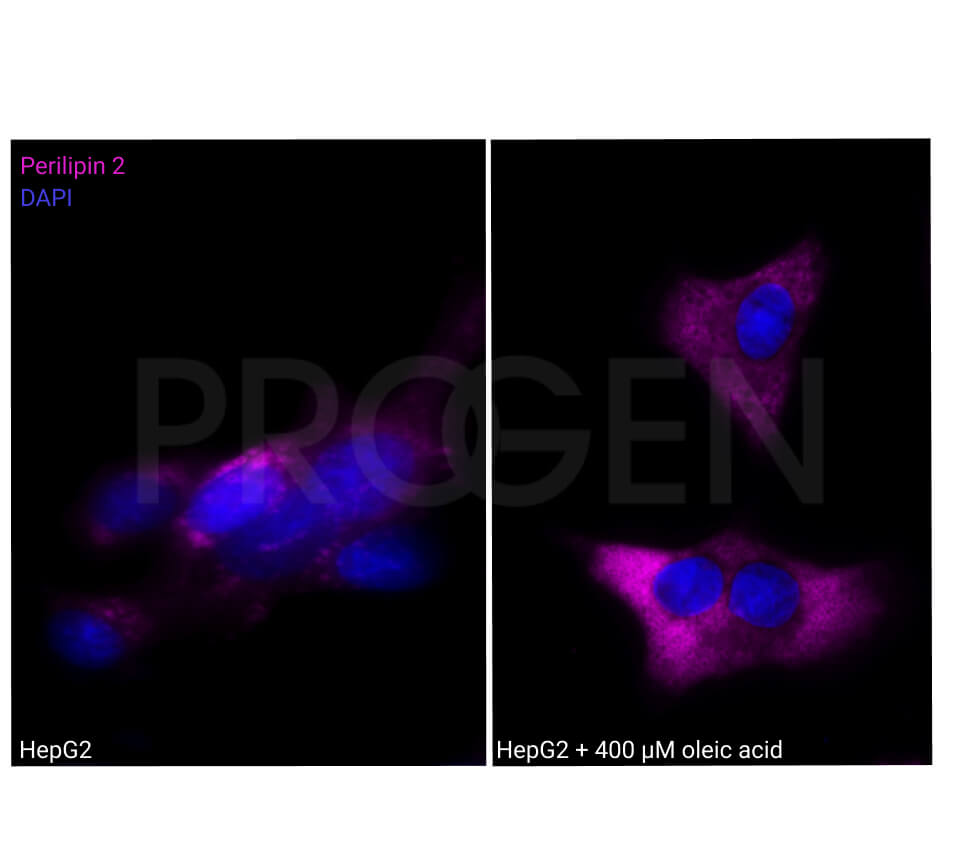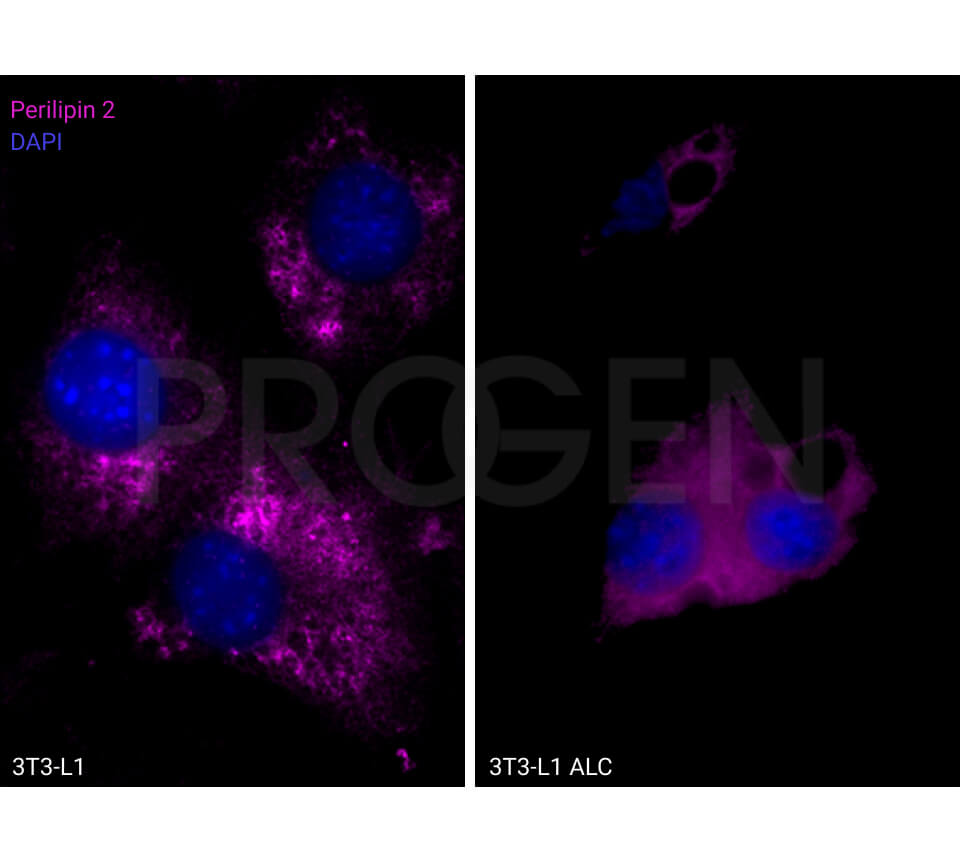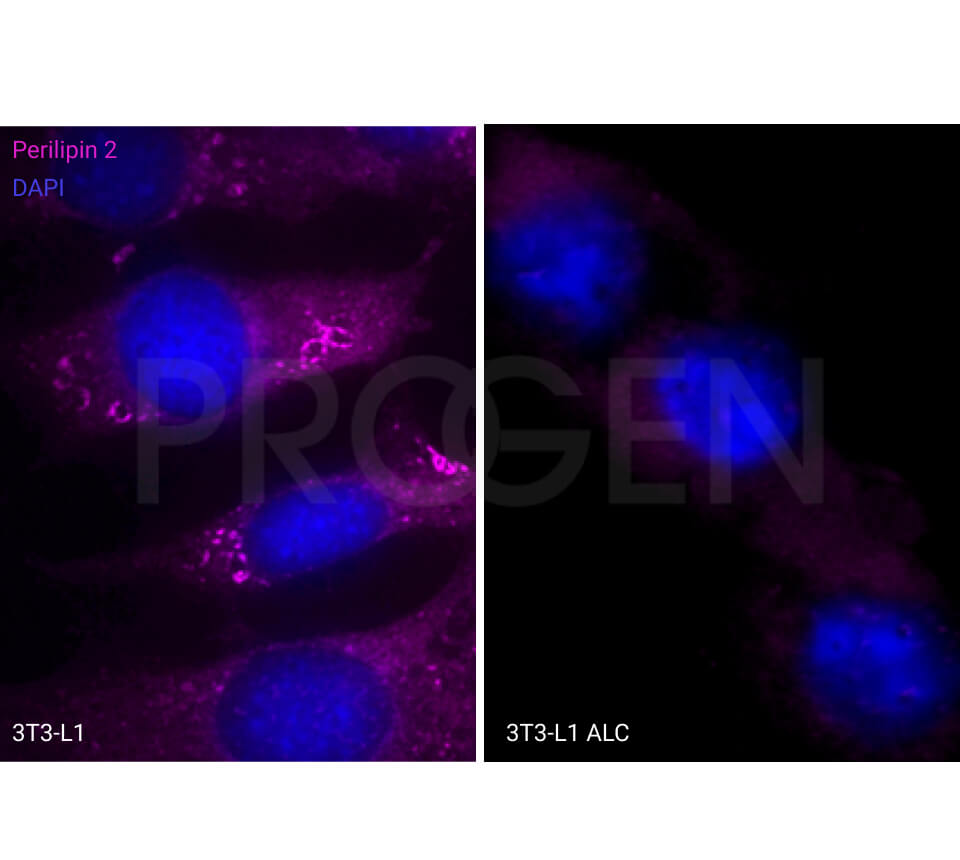anti-Perilipin 2 (N-terminus) mouse monoclonal, AP125, liquid, purified, sample
- Purified, liquid, small
- Mouse monoclonal
- Suitable for IHC and WB
- Reacts with dog, human and rat
- Isotype: IgG1
Product description
| Quantity | 200 µl |
|---|---|
| Antibody Type | Monoclonal |
| Host | Mouse |
| Isotype | IgG1 |
| Conjugate | Unconjugated |
| Application | IHC, WB |
| Purification | Affinity chromatography |
| Reactivity | Dog, Human, Rat |
| No reactivity | Bovine |
| Storage | Short term at 2-8°C; long term storage in aliquots at -20°C; avoid freeze/thaw cycles |
| Intended use | Research use only |
| Clone | AP125 |
| Immunogen | Synthetic peptide (aa 5-27 from N-terminus of human adipophilin/PLIN2) |
| Concentration | 50 µg/ml (10 µg) |
| Formulation | PBS buffer, pH 7.4 with 0.09% sodium azide and 0.5 % BSA |
| UniprotID | A0A5F4CRI5 (Dog, Canis familiaris), Q99541 (Human), Q5U2U5 (Rat) |
| Synonym | Perilipin-2, Adipophilin, Adipose differentiation-related protein, ADRP, PLIN2, ADFP |
Applications
| Tested applications | Tested dilutions |
|---|---|
| Immunohistochemistry (IHC) - frozen | 1:10-1:100 (0.5-5 µg/ml) |
| Immunohistochemistry (IHC) - paraffin | 1:10-1:100 (0.5-5 µg/ml; microwave treatment recommended) |
| Western Blot (WB) | 1:50-1:100 (0.5-1 µg/ml) |
Background
Perilipin 2/Adipophilin/ADRP/PLIN2 is a ubiquitous component of lipid droplets. It has been found in milk fat globule membranes and on the surface of lipid droplets in various cultured cell lines; inducible by etomoxir.
Enhanced expression of Perilipin 2/Adipophilin/ADRP/PLIN2 is a useful marker for pathologies characterized by increased lipid droplet accumulation. Such diseases include atheroma, steatosis, obesity and certain cases of liposarcoma. It also seems to be a potent marker for atherosclerosis. ADRP can also be used to study virus entry via lipid droplets.
Polypeptide reacting: Perilipin 2/Adipophilin/ADRP/PLIN2, MW 48,100 (calculated from aa sequence data); apparent Mr 52,000 (after SDS-PAGE); pI 6.72.
Immunolocalization: Perilipin 2/Adipophilin/ADRP/PLIN2 is positively detected in the glandular cells of lactating mammary gland (ductal cells are negative), zona fasciculata of the adrenal gland, Sertoli cells of the testis, and in fat-accumulating hepatocytes of alcoholic cirrhotic fatty liver; adipocytes are negative.Also positively stained are lipid-storing CD 68-positive macrophages.
Tested cultured cell lines: PLC, MDCK.
Learn more about PROGEN Perilipin antibodies.
References/Publications (43)
Downloads
Q & A's
Customer Reviews
Login
FAQs
The concentration of purified antibodies is mentioned on the datasheet.
For prediluted antibodies the concentration may vary from lot to lot. The concentration of these antibodies is not mentioned on the datasheet and can be requested at support@progen.com.
The supernatant format contains FCS proteins from cell culture medium supplemented with FCS.
The serum antibodies contain other proteins present in serum.
- The fixation method used for lipidic material influences tremendously the quality of staining results.
Tissue fixation should not exceed 2% paraformaldehyde. - Heat induced antigen retrieval is recommended. In many cases a standard protocol using 10 mM citrate buffer (pH 6) works fine.
- Supernatant and supernatant concentrate: This format contains hybridoma cell culture supernatant. The antibody is not purified and the antibody concentration is not determined. The antibody concentration may vary from lot to lot. Therefore we recommend to titrate the optimal concentration for the application used for each new lot.
- Lyophilized, purified: This format contains purified antibody in lyophilized form. The reconstitution of this antibody is described in the datasheet. The buffer composition after reconstitution is also mentioned on the datasheet.
- Liquid, purified: This format contains purified antibody in liquid format. The concentration is mentioned on the datasheet.
- Prediluted, purified: This format contains purified antibody in liquid format. Most antibodies in this format are diluted to be ready-to-use for IHC with standard tissue. But some antibodies of this format need further dilution for IHC. This is mentioned on the datasheet.
Most of our liquid antibodies and reconstituted lyophilized antibodies may be stored for short term storage (up to 3 month) at 2-8°C. For long term storage we recommend to store the antibody at -20°C in aliquots. Please avoid freeze and thaw cycles.
Most of our conjugated antibodies should be stored at 2-8°C.
The individual storage conditions are mentioned on the datasheet.
- The use of milk preparations (skim milk, dry milk) for blocking and for antibody dilution buffer might be problematic. The antigen of the Perilipin 2 antibodies was originally found and described in bovine milk and some dry milk brands (or even different lots) might contain the epitopes and block it, thus abolishing the reaction with the antigen transferred onto the Western blot membrane. In this case Tween 20 or BSA or ovalbumin is recommended as e.g. blocking material.
- Immune reaction with cultured cells: this depends on the age of the cell culture; old cells (more than confluent) tend to accumulate fat and are therefore positive for Perilipin 2. Freshly split cells contain only few lipid droplets and are not easily detectable as positive for Perilipin 2.
- Tissue with a high contents of fat might be problematic in electrophoretical separation. One has to load much material onto the SDS gel in order to get enough protein for a positive immunological signal. In addition the protein solubility is sometimes hindered by high fat concentration in the sample.

